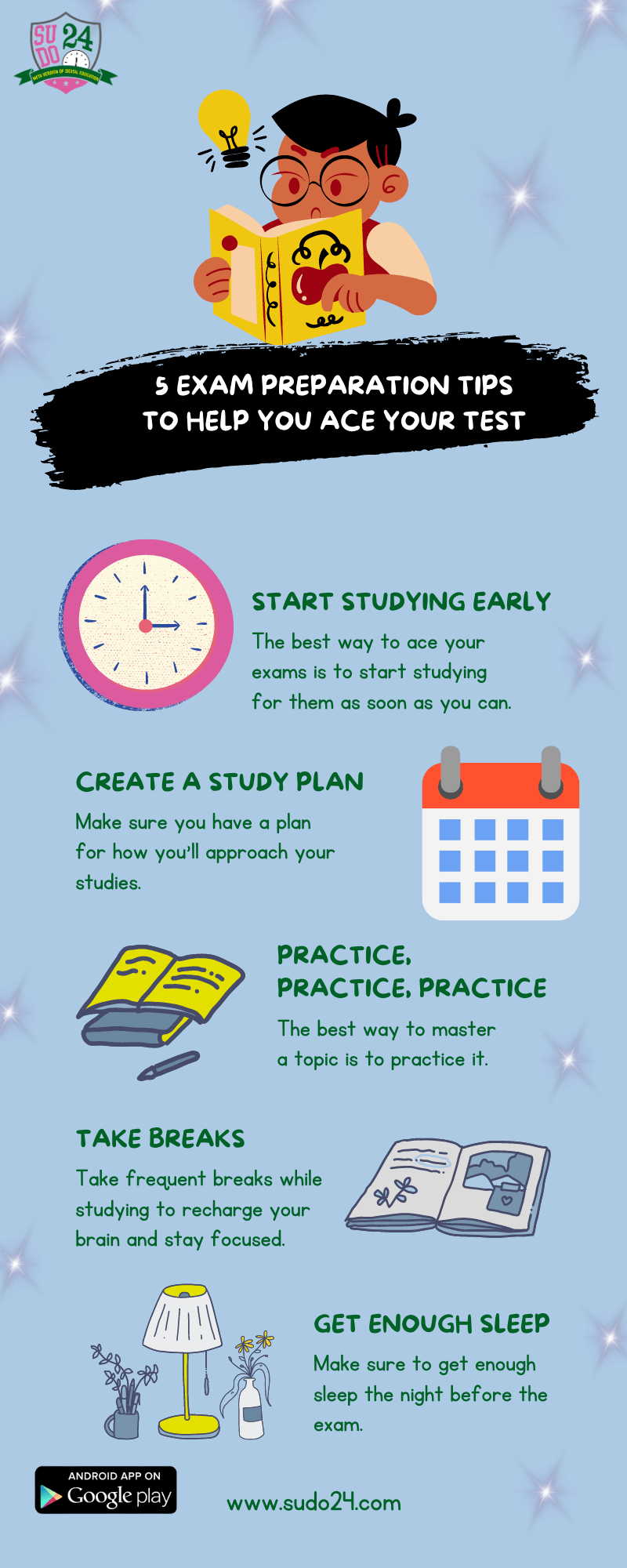Pulse of Information
Your source for the latest insights and updates.
Test Prep or Stress Prep: Choosing Your Path
Navigate the tension between test prep and stress prep. Discover tips to maximize your success while keeping anxiety at bay!
Test Prep vs. Stress Prep: Which Strategy is Best for You?
When it comes to preparing for exams, students often find themselves torn between test prep and stress prep. Test prep typically involves traditional study methods such as reviewing textbooks, taking practice tests, and utilizing flashcards. This technique emphasizes the acquisition of knowledge and test-taking skills, aiming to boost scores through diligent preparation. On the other hand, stress prep focuses on managing anxiety and improving mental well-being. Techniques such as mindfulness, breathing exercises, and proper time management fall under this category, aiming to create a calm mindset conducive to optimal performance.
Ultimately, the choice between test prep and stress prep depends on individual learning styles and emotional needs. For some, rigorous study sessions can lead to increased confidence and success, while others may find that addressing their stress levels results in better focus and retention. It's essential to evaluate your unique situation and perhaps even integrate aspects of both strategies. Consider creating a balanced approach that includes test prep techniques supplemented by stress prep practices, leading to not just academic success, but also emotional resilience.

Top Strategies for Effective Test Preparation
Effective test preparation is crucial for achieving academic success. One of the top strategies is to create a study schedule. This not only helps in managing time effectively but also ensures that all subjects are covered adequately. Break your study material into manageable sections and assign specific times to each. Additionally, consider using a study group to collaborate with peers, enhancing the learning experience through discussion and shared resources.
An equally important strategy is to utilize a variety of study techniques. Active learning methods, such as practice tests and flashcards, can significantly enhance retention. Incorporating different formats, such as visual aids and mnemonic devices, can also cater to various learning styles. Lastly, don't underestimate the power of regular breaks during study sessions to maintain focus and prevent burnout. Remember, consistency is key to effective test preparation.
How to Manage Stress During Exam Season: Tips and Techniques
The exam season can be a particularly stressful time for students, but managing that stress effectively is crucial for optimal performance. Creating a study schedule is one of the best ways to alleviate anxiety. By breaking down your study material into manageable sections and assigning specific times to each subject, you can avoid last-minute cramming and improve retention. Consider incorporating short, regular breaks into your schedule to give your brain some time to rest and recharge. Techniques such as mindfulness meditation during these breaks can also be highly beneficial in keeping your mind calm and focused.
Another effective way to handle stress during exam season is through physical activity. Engaging in regular exercise not only helps to reduce anxiety but also enhances mood and boosts cognitive function. Join a local sports club, take daily walks, or practice yoga to keep both your body and mind in shape. Additionally, ensure that you are maintaining a balanced diet and getting enough sleep; both play a significant role in managing stress levels. Remember, while exams are important, taking care of your mental and physical health should be your top priority.